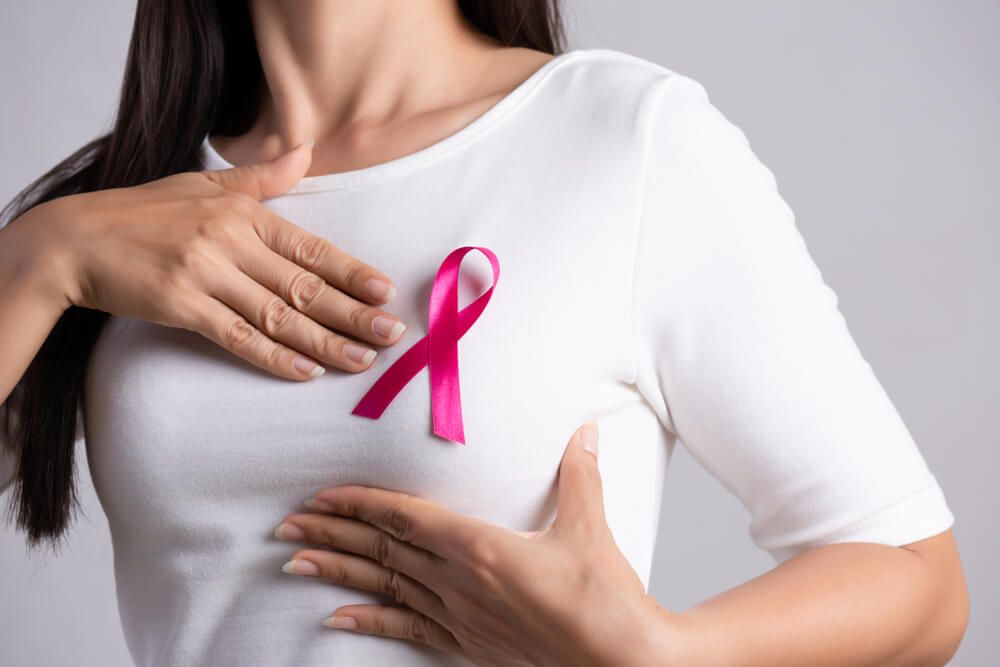In the realm of healthcare, few journeys are as challenging as navigating breast cancer treatment across its various stages. Understanding the nuances of breast cancer staging is crucial for devising effective strategies tailored to each phase of the journey. Join us as we explore the stages of breast cancer, associated symptoms, and breast cancer treatment by stage approaches, offering insights to empower individuals facing this formidable foe.
Although very emotionally difficult, unfortunately sometimes the only choice women suffering from breast cancer have is to go for breast surgery options in Wellington, FL. This can be exhausting for the patients, so medical centers such as Advanced Surgical Physicians try their best to help the patients both medically but also through emotional support, because cancer as a diagnosis can be quite scary and patients need as much guidance and help as they can get.
Decoding Breast Cancer Staging
Decoding the stages of breast cancer is akin to unraveling a critical map that guides healthcare professionals and patients through the complex landscape of the disease. This systematic classification, ranging from Stage 0 to Stage IV, serves as a vital tool in understanding the extent of cancer’s progression.
Stage 0 denotes non-invasive cancer, confined within the milk ducts or lobules, while Stage IV represents an advanced phase with metastasis beyond the breast. Each stage demands a unique approach, influencing treatment decisions and shaping the trajectory of the patient’s journey. Deciphering breast cancer staging involves a meticulous examination of factors like tumor size, lymph node involvement, and the presence of distant metastases, providing invaluable insights crucial for devising personalized and effective treatment plans.
This decoding process empowers both healthcare providers and individuals facing breast cancer, fostering a clearer understanding of the disease’s dynamics and aiding in the formulation of targeted strategies for optimal outcomes.
Unveiling the Stages of Breast Cancer
To make the topic a bit clearer for you and to bring you at least the basics when it comes to breast cancer stages and symptoms, here is a simple division of breast cancer staging:
Stage 0: In Situ Confines – At Stage 0, breast cancer finds itself in a unique state of dormancy known as “In Situ Confines.” In this early phase, the cancerous cells are confined within the milk ducts or lobules, exhibiting a non-invasive nature. Often referred to as carcinoma in situ, this stage is characterized by abnormal cells that have not yet breached the surrounding tissues. The significance of Stage 0 lies in its potential for complete cure, as the cancerous cells are localized and have not spread beyond their initial site.
Prompt detection and intervention are paramount during this stage, typically involving surgical removal through procedures like lumpectomy or mastectomy. Although Stage 0 may not evoke the urgency associated with more advanced stages, it serves as a critical starting point for effective treatment, setting the stage for a positive prognosis and a successful journey towards recovery.
Stages I and II: Local Encroachment – Stages I and II of breast cancer signify a transition from localized to a more defined presence within the breast tissue. In these stages, the invasive nature of cancer becomes apparent, with Stage I indicating a smaller tumor size and limited lymph node involvement, while Stage II suggests a slightly larger tumor or more extensive lymph node participation. Early detection remains paramount during Stages I and II, as it allows for a range of treatment options aimed at curbing the progression of the disease.
Surgical intervention, often in the form of lumpectomy or mastectomy, takes precedence, accompanied by additional therapies such as radiation, chemotherapy, or hormonal treatments. The emphasis is on a multimodal approach, tailoring treatments to the unique characteristics of the cancer. Successfully navigating Stages I and II involves a collaborative effort between healthcare professionals and patients, incorporating personalized care plans that balance eradicating the cancer while preserving the overall well-being of the individual.
Stage III: Regional Onslaught – In Stage III of breast cancer, the battleground extends beyond the confines of the breast, marking a pivotal shift into a more advanced and challenging phase. Characterized by regional invasion into nearby lymph nodes, Stage III demands a comprehensive and aggressive approach. This stage is further divided into subcategories (A, B, and C) based on the size of the tumor and the extent of lymph node involvement.
The complexity of Stage III necessitates a multifaceted treatment strategy, often incorporating a combination of surgery, radiation therapy, and systemic treatments like chemotherapy or hormonal therapy. The goal is not only to remove the primary tumor but also to address potential spread to the lymphatic system. Given the increased risk of recurrence and the higher stakes involved, Stage III requires vigilant monitoring and personalized care plans.
Successful navigation through this stage hinges on a collaborative effort between healthcare providers and patients, with the aim of achieving optimal outcomes while mitigating the challenges posed by the advanced nature of the disease.
Stage IV: Distant Outposts – Stage IV represents the most advanced and formidable phase of breast cancer, signifying its spread to distant organs beyond the breast. At this point, the cancer has metastasized, reaching areas such as the lungs, liver, bones, or brain. The challenges posed by Stage IV are significant, as the focus shifts from curative interventions to comprehensive palliative care.
The primary objective becomes managing symptoms, improving the quality of life, and extending survival. Treatment options for Stage IV breast cancer often include systemic therapies like chemotherapy, targeted therapies, and hormone therapy. While complete cure may be elusive, advancements in medical science have led to more effective and targeted treatments, offering hope and prolonging survival.
The emphasis during Stage IV is on personalized and supportive care, addressing the physical and emotional aspects of the disease. A multidisciplinary approach, involving oncologists, palliative care specialists, and support networks, is crucial to navigating the complex challenges posed by advanced-stage breast cancer with resilience and dignity.
Breast Cancer Treatment by Stage
Understanding breast cancer stages is incomplete without delving into treatment modalities specific to each phase.
- Stage 0: Surgical Intervention or surgical removal, often through lumpectomy or mastectomy, is standard. Adjuvant therapies may be recommended to minimize recurrence risk.
- Stages I and II: Surgery remains pivotal, often followed by radiation and systemic therapies like chemotherapy or hormonal treatments. Personalized care plans are imperative.
- Stage III: Extensive surgery, coupled with aggressive therapies, aims at eradicating both primary and affected lymph nodes. Adjuvant treatments help eliminate residual cancer cells.
- Stage IV: Comprehensive Palliation
While complete cure may be elusive, a combination of systemic treatments, targeted therapies, and supportive care strives to manage symptoms and enhance life quality.
Recognizing Breast Cancer Stages and Symptoms
Understanding the subtle signs, like changes in breast size or persistent lumps, is paramount for early diagnosis, irrespective of the stage. When it comes to symptoms, they evolve with stages. Recognizing and reporting changes promptly enables timely interventions, enhancing the likelihood of successful outcomes.
Conclusion
In the labyrinth of breast cancer, knowledge is a powerful ally. Navigating the stages demands a comprehensive understanding of breast cancer staging, symptoms, and treatment modalities. By fostering awareness and embracing personalized strategies, individuals can confront this formidable adversary with resilience, ultimately paving the way for survival.
Remember, knowledge is empowerment in the journey against breast cancer. Get more information and support from our expert team, so call us today and schedule a consultation!







